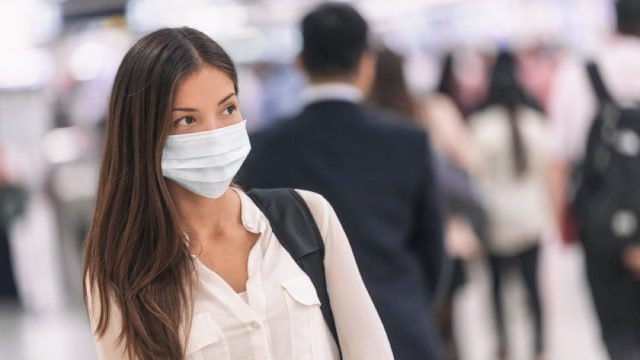CDC Will Now Screen You for COVID, Flu, and RSV at 4 Major Airports

If you’re a frequent traveler, you’ve probably noticed that some airports already offer COVID testing—but effective immediately, health screenings are expanding. CNN reports those testing centers, which are operated by the U.S. Centers for Disease Control and Prevention (CDC), will now also screen for more than 30 different types of pathogens, including the flu, respiratory syncytial virus (RSV), and other respiratory viruses.
RELATED: Doctor Reveals COVID Symptoms in Patients Who Haven’t Gotten a Fall Booster.
The CDC’s Travelers’ Health Branch oversees the Traveler-based Genomic Surveillance program, which was first initiated in 2021. Since then, the program has evolved to track new subvariants of COVID, as well as other pathogens. These are detected through wastewater samples and voluntary nasal swabs.
As we encroach on one of the busiest travel times of the year, Travelers’ Health Branch chief Cindy Friedman, MD, tells CNN that instituting a genomic surveillance program at airports can help detect “new and emerging infections.”
CNN reports that the CDC’s traveler genomic surveillance program will “test for more than 30 bacteria, antimicrobial resistance targets and viruses including influenza A and B, and respiratory syncytial virus, known as RSV.”
The program will roll out at four major international airports across the U.S.: Boston Logan, San Francisco, Washington, D.C.’s Dulles International, and John F. Kennedy (JFK) in New York. Travelers are invited to participate in a voluntary nasal swab upon arrival. While participation isn’t mandatory, Friedman did note a higher number of samples could lead to early detection.
According to CNN, over 37,000 nasal samples have been collected thus far. Passengers were traveling from over 135 countries, and the CDC has sent more than 14,000 samples back for further analysis.
At the end of the day, Friedman explained the expanded testing is designed to help determine what kind of viruses are coming in and out of the U.S., and if they have the potential to be as dangerous as COVID.
“There are a lot of blind spots globally where there’s limited testing and monitoring,” she told CNN. “In general, our focus is on airports that are international hubs, and have flights coming in from a broad array of international locations.”
So, if you’re traveling this holiday season, consider spending a few extra minutes in the terminal and volunteering for a screening.
RELATED: For more up-to-date information, sign up for our daily newsletter.